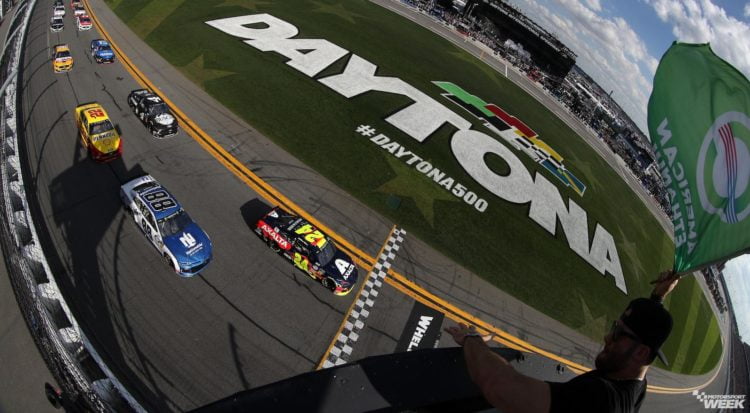NASCAR announced Wednesday changes to stage lengths for 16 Cup Series races in 2020, shortening the third [final] stages in those races with the goal of increasing pit-strategy options. Those changes include stage lengths in the season-opening Daytona 500, scheduled for Feb. 16.
“With the 550 engine package, the fuel mileage was different, and the fuel windows got really tight before this change,” NASCAR Senior Vice President of Competition Scott Miller said, as quoted in an NBC Sports article. “All this does is make it so, in the final stage, there is more than a couple of lap options for the whole field to pit, and it gives a little bit more leeway at the end on fuel, should we go into overtime. That’s why the speedway races got changed.”
For the Daytona 500, the final stage has been shorted from 80 laps to 70 laps. As a result the first two stages have been lengthened five laps each, to 65 from 60 laps. The changes also affect races at the following tracks: Talladega Superspeedway, Atlanta Motor Speedway, Texas Motor Speedway, Darlington Raceway, Phoenix Raceway, New Hampshire Motor Speedway, Dover International Speedway and Richmond Raceway.
“Phoenix, New Hampshire, Dover and Richmond, the goal there was to create some stages that potentially gave us some more strategy options for the crew chiefs,” Miller said. “Typically, those races laid out to where there was no stop necessary in stage one and stage two and a green-flag stop necessary in stage three. These shifts in stage length put us to where there is a need for a green-flag stop in the second and the third stage. Some more strategy options available there.”
CLICK HERE TO SEE THE CHANGES FOR AFFECTED RACES
Miller also stated the sanctioning body entertained the idea of adding a fourth, short stage to each race, but that idea was scrapped. The Coca-Cola 600, the longest race of the season, hosted by Charlotte Motor Speedway each May, is the only four-stage race of the season.
Stage lengths haven’t yet been determined for the three road-course races on the schedule at Watkins Glen International, Sonoma Raceway and the Charlotte Motor Speedway Roval. A change being considered for those races is a reduced fuel-cell capacity.
“At the road courses, there’s only one green flag stop that is necessary, and that is in the third stage,” Miller said. “We’re talking about reducing the fuel-cell capacity and creating some stage lengths that again create a green-flag stop in stage two and stage three. Still some work to do there on particulars on the fuel cell and make sure that everything works with the industry. I think we will probably get there.”







